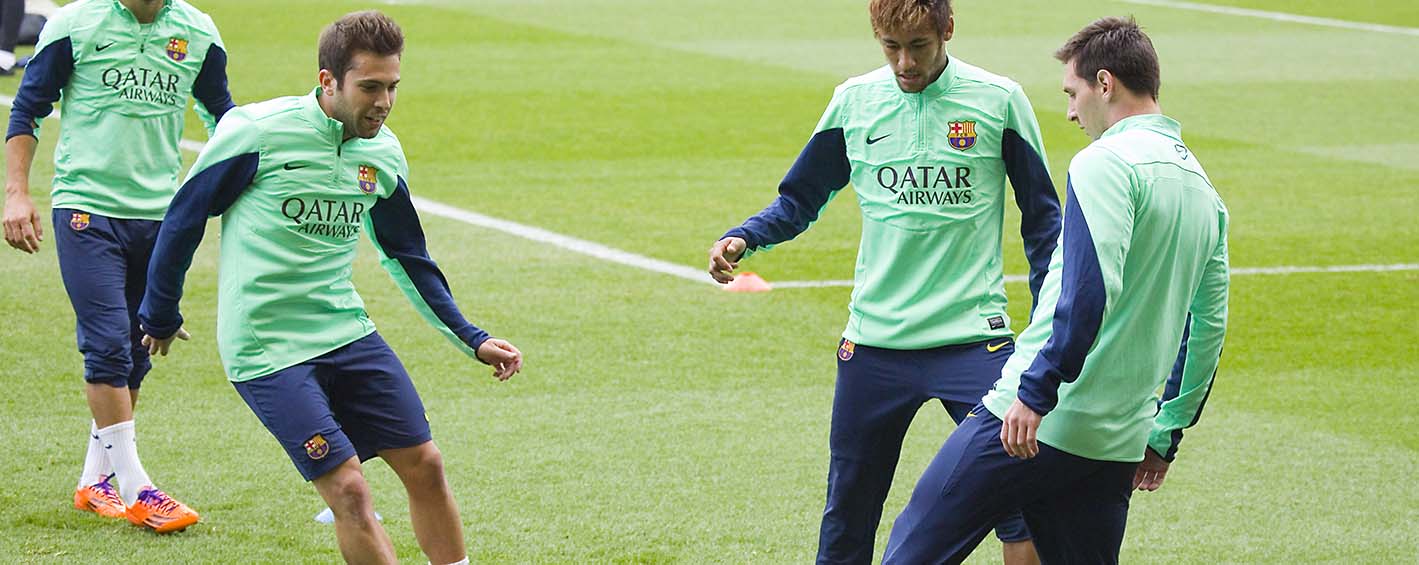Share it
In a recent survey children were asked to describe what fun meant for them, winning was ranked by children as the 48th most important reason to describe fun. Trying your best and getting playing time are the top answers.
The debate regarding coaches focusing on winning rather than development is strong in the football world, especially in youth football. There are pros and cons to this topic and also it is important to remember that in some cases it’s not only the choice of the coach but also other factors that affect what way the coach in youth teams will follow. In this part play an important role also the parents of the kids, the club, etc.
In football everyone wants to win from the coaches to the players, winning is fun and no one like losing but winning isn’t everything, especially with youth teams or youth players. We have seen youth teams coach focusing too much on winning and this can have a deferential effect on their players.

Player development
A focus on winning can affect the development of individual players by not giving them enough time to develop their skills and knowledge. When winning is the focus players can be affected by game time and questions can arise for example “Are they getting enough time to be enjoying what they are doing?”. Instead by not focusing on development, the performance of the team can also suffer.
In reality, winning matters but development matters more in the youth football sector. At the end of the game, there’s a score and there is generally a “winning team” and a “losing team". But an important question raised by everybody is what does winning mean after all? Does winning mean having the better score in a U7 league game? Does winning mean a team that goes unbeaten in their U8 group?
To some yes, for others winning or more specifically a winning mentality means players who are hungry and determined to give 100% to improving everything they do. Inspire our youth players to be hungry and motivated to improve constantly at whatever they do.
Kids not having fun anymore
An important piece of data is that of one survey made regarding kids and football, and by the age of 13 years old, 70% of kids involved in football drop out of the game. The reason why they do this is that they aren’t “having fun anymore” and they have lost interest. In all this debate adults are the ones throwing around what kids want. It’s fascinating when a 50 years old is explaining what their seven-year-old son or daughter wants.
Another interesting survey was made regarding why kids participate in football. Over 90% of children responded that they participate in it because it was fun. Also, the children were asked to describe what fun meant for them, and winning was ranked by children as the 48th most important reason to describe fun. Trying your best, being treated with respect by the coach, and getting playing time are the most important factors that kids define fun by.

Short Term Success
The obsession for short-term success had decidedly destroyed the long-term possibilities for players. Instead of harping on the most recent scoreline in your league game why not watch the game and see where your son or daughter could improve? At 7 years old are we talking about perfection? No, but in this way we are extolling the values of hard work, a never quit attitude and always working to get better.
Unfortunately today we have become so results-oriented that we have created an environment that does not best serve long-term player development, nor does it serve the long-term personal development of the players. We have seen during the last years that due to this environment alarming dropout rates across not only football but all sports.

Barcelona And Education
A well-known figure in the football world like Xavi says about this topic: “Some youth academies worry about winning, instead we at Barcelona worry about education”.
It is hard to do what’s right for a kid's long-term development because of pressure from one group who should be most supportive of it: parents. They want quality for their kids but they mistake wins for quality thus ironically putting pressure on coaches to serve their kids poorly.
The parents it is important to remember that when searching for a coach for their child don’t just look at a coach's winning record they need to delve deeper than that. Focusing on winning causes a coach to think and plan short term, a focus on winning can also lead to coaches using inappropriate training content for the development stage of the athletes.
To understand better this debate we need to know these questions and keep in mind those questions: Is one a good youth coach if one wins youth matches? The most important thing to start is realizing what the aim of a youth academy is. Why does a youth academy exist? What is the point of all youth academies?
The reason we have youth academies is that we want to develop our children in football and we are successful when children become professional football players and achieve their dream. Another important question regarding this topic is “Are we sacrificing long-term athletic development for short-term wins?
Coaching Environment
There are some coaches and parents that believe that environments that focus on their training on player development have no desire to win games and players will never learn to strive for a win. The two categories of coaches those who are winning-focused and those who are development focused can be understood due to their qualities or aspects.
For example, a winning-focused coach has these qualities: picking the same team for every game, players being made to play through an injury, not allowing other “weaker” players to play very long in games, and winning games by large margins for their ego. Instead, a development-focused coach has these qualities: playing players out of position to work specific areas of their game, making sure to rotate all the players to ensure everyone gets to start games, and manipulating the game during one-sided affairs creating challenges for their players.
Conclusion
In conclusion, we must shift our perception of the winning versus development argument because the two are not opposites and should be treated as vital to player development. And it is important to remember that everything in the youth football sector should be done taking into consideration the best interest of the young players and how they will benefit the most from these choices.